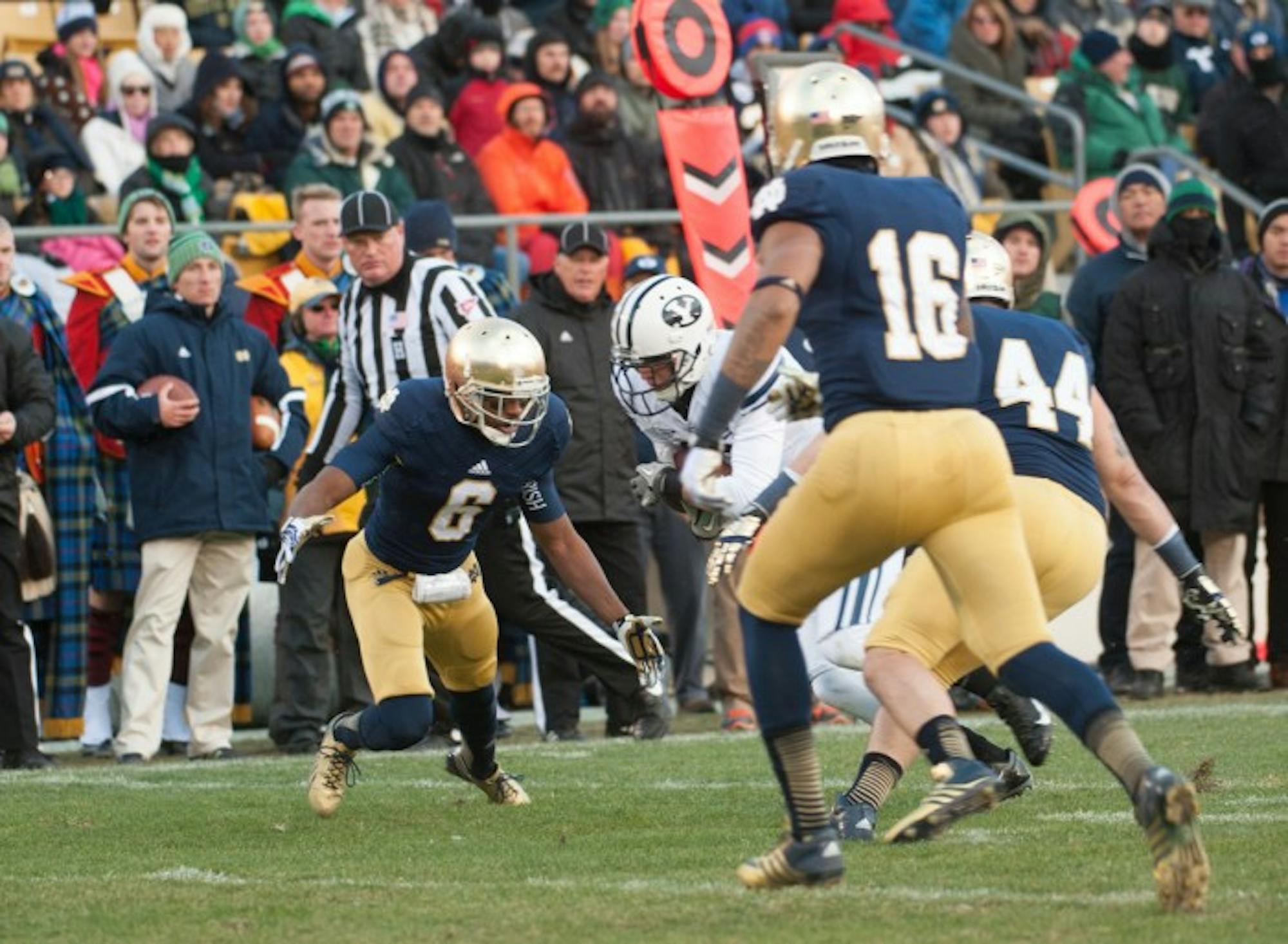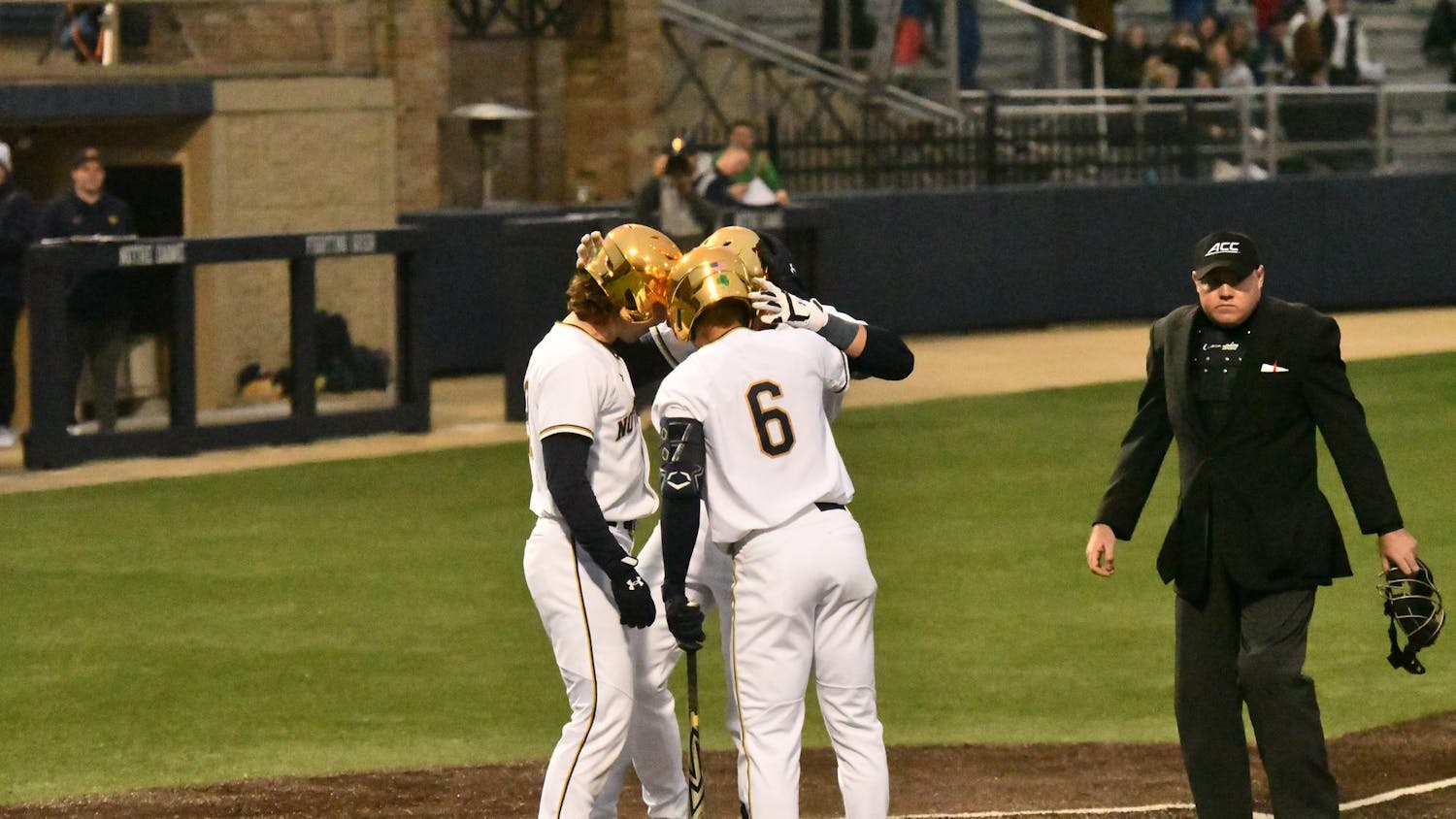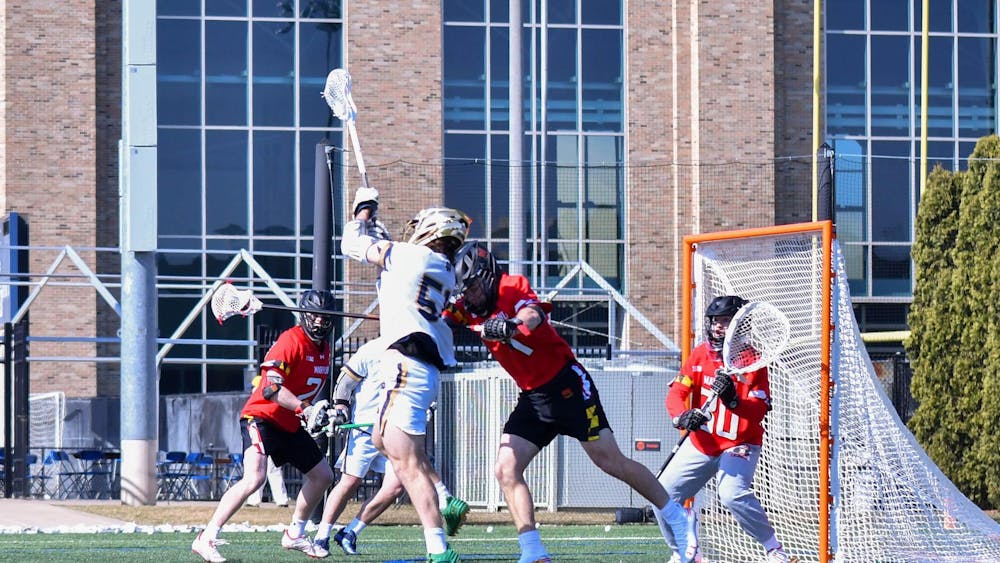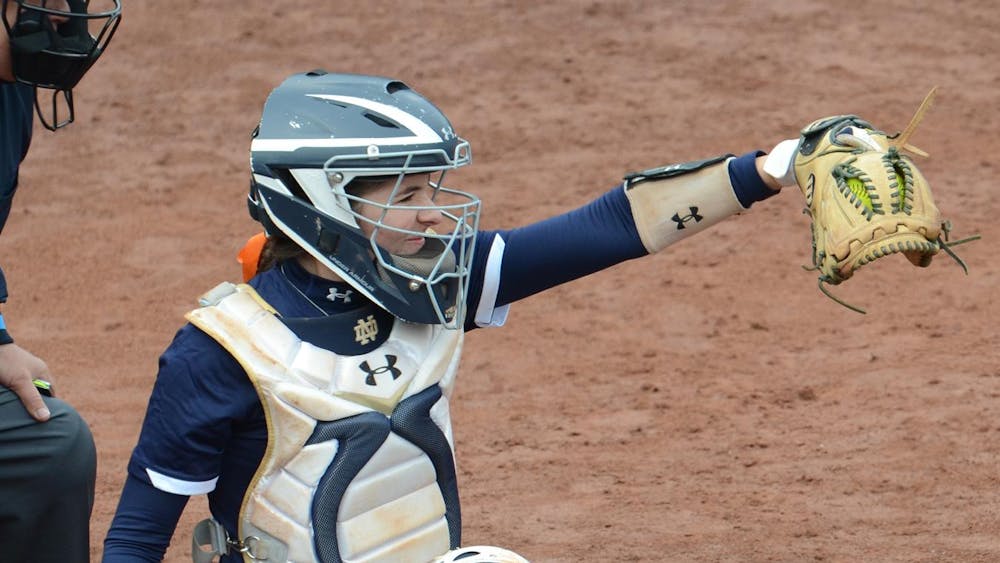Notre Dame’s football program has been given a year’s probation and is to vacate all wins from the 2012 and 2013 seasons after a former student-athletic trainer was found to have violated NCAA rules, the NCAA announced Tuesday.
Irish head coach Brian Kelly announced at his Tuesday press conference that the school will appeal the vacation of wins.
“It’s never happened before in the history of the NCAA,” Kelly said. “A penalty has never been issued in this fashion before. I think that qualifies for being — first of all, it was discretionary. This is a discretionary action by the committee, that’s No. 1. No. 2, it was student-on-student cheating. There was nobody implicated; the NCAA agreed across the board with that finding. And it was clearly excessive.
“So, as you know, we’re going to appeal this. One of the options, or clear reasons for appeal, is that the penalty is excessive in its discretion. And we believe we have obviously grounds there.”
University President Fr. John Jenkins agreed with Kelly in a press release, and noted that the penalty, which he considers inappropriate, could set a dangerous precedent going forward.
“We believe that imposition of the vacation of records penalty without serious underlying institutional misconduct will not primarily punish those responsible for the misconduct, but rather will punish coaches, student-athletes and indeed the entire institution who did nothing wrong and, with regard to this case, did everything right,” Jenkins said in the release. “We are also concerned that establishing this precedent will infringe on universities’ autonomy in deterring academic dishonesty, for it will discourage the retroactive lowering of grades even when an honor code committee deems this appropriate.
“As we said at the outset of the investigation, Notre Dame would willingly accept a vacation of records penalty if it were appropriate. It is not in this case. Indeed, should this precedent stand, it could create a perverse incentive that will discourage institutions from investigating so aggressively and imposing the penalties for academic dishonesty that their honesty committees might judge appropriate.”
The penalties stem from a former student-athletic trainer, who committed academic misconduct for two football players and provided six others with impermissible academic benefits, per the NCAA’s Division I Committee on Infractions panel. An additional player committed academic misconduct on his own.
Of the two players that committed academic misconduct with the trainer, one competed while ineligible during the 2012 football season, while the other competed while ineligible throughout the 2013 season. The third player that committed academic misconduct played in five games of the 2013 season.
The student-athlete that competed while ineligible in the 2012 season committed academic misconduct in eight classes over five semesters at Notre Dame, including three with the trainer — a College Seminar course, intro to peace studies and ethics — during the spring 2012 and fall 2012 semesters. The player competed in every game during the 2012 season, including the BCS National Championship. He was dismissed from the University for two semesters and retroactively had his grades changed, but re-enrolled in summer 2015.
The student-athlete that competed while ineligible throughout the 2013 season committed academic misconduct in two classes during the 2012-13 school year, including one — foundations of theology — with the trainer in the spring 2013 semester.
The trainer also provided six players with impermissible academic benefits in 16 classes, spanning from the fall 2011 semester through the spring 2013 one. Those 16 classes were spread across seven departments — anthropology, English, film, television, and theatre, history, philosophy, political science and theology — and the computer applications program, which was housed in the College of Arts & Letters.
The final student-athlete, who committed academic misconduct on his own, did so in five courses between the fall 2012 and fall 2013 semesters. He played in four regular-season games in 2013, plus the Pinstripe Bowl game.
The investigation began following the so-called “Frozen Five” case, where in 2014, five then-Irish football players — receiver DaVaris Daniels, safety Eilar Hardy linebacker Kendall Moore, cornerback KeiVarae Russell and defensive lineman Ishaq Williams — were suspended from the team, with Daniels, Moore, Russell and Williams being dismissed from the University. Hardy returned to action later in the 2014 season, while Russell and Williams each were readmitted to the University in 2015. Russell returned to the field for Notre Dame in 2015, but Williams did not.
Additionally, the former student-athletic trainer has been handed a two-year “show cause” penalty by the NCAA, while Notre Dame must disassociate itself from the former trainer for the next two years. Notre Dame was also fined $5,000 by the NCAA.













